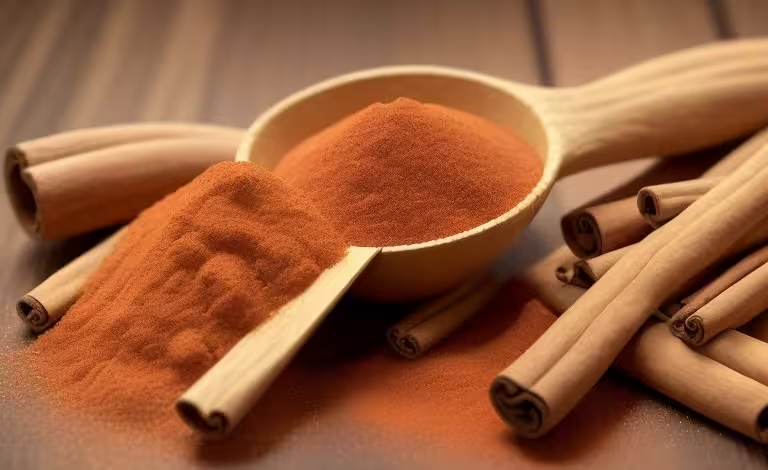
Is Cinnamon Good for Cholesterol? A Deep Dive into Its Benefits
Cinnamon isn’t just a spice that adds flavor to your favorite dishes; it’s been revered for its medicinal properties for centuries. One of the most intriguing benefits that has gained attention in recent years is its potential to improve cholesterol levels. But is cinnamon really good for cholesterol? Let’s dive into the science behind this spice and find out how it could help you manage your cholesterol levels.
What Is Cholesterol and Why Does It Matter?
Before exploring how cinnamon might help, it's essential to understand what cholesterol is and why managing it is crucial for your health.
Understanding Cholesterol
Cholesterol is a waxy, fat-like substance found in every cell of your body. While your body needs cholesterol to build cells and produce certain hormones, having too much of it in your bloodstream can lead to health problems.
Types of Cholesterol
There are two main types of cholesterol:
- Low-Density Lipoprotein (LDL): Often referred to as “bad” cholesterol, LDL can build up in the walls of your arteries, leading to atherosclerosis, which increases the risk of heart disease and stroke.
- High-Density Lipoprotein (HDL): Known as “good” cholesterol, HDL helps remove LDL from your bloodstream, transporting it to the liver, where it can be broken down and eliminated from your body.
Why High Cholesterol Is Dangerous
High levels of LDL cholesterol can lead to plaque buildup in your arteries, narrowing them and making it harder for blood to flow. This condition, known as atherosclerosis, can result in heart attacks, strokes, and other cardiovascular diseases.
Cinnamon: A Brief Overview
Cinnamon is a spice derived from the inner bark of trees belonging to the Cinnamomum genus. There are two main types of cinnamon:
- Ceylon Cinnamon (True Cinnamon): Often referred to as “true” cinnamon, Ceylon is lighter in color and has a sweeter, more delicate flavor.
- Cassia Cinnamon: This is the more common variety found in most grocery stores. It’s darker and has a stronger flavor.
Both types contain a compound called cinnamaldehyde, which is responsible for cinnamon’s health benefits.
How Does Cinnamon Affect Cholesterol?
Several studies suggest that cinnamon might play a role in lowering cholesterol levels, particularly LDL cholesterol. Here’s what the research says:
Cinnamon and LDL Cholesterol
Some studies have shown that cinnamon can help reduce LDL cholesterol levels. A study published in the Journal of the American College of Nutrition found that consuming cinnamon extract for 12 weeks led to a significant reduction in LDL cholesterol levels in people with type 2 diabetes.
Cinnamon and HDL Cholesterol
There’s also evidence to suggest that cinnamon might help increase HDL cholesterol. The same study mentioned above noted a slight increase in HDL levels among participants who consumed cinnamon regularly.
Cinnamon’s Antioxidant Properties
Cinnamon is rich in antioxidants, which can help reduce oxidative stress in the body. Oxidative stress is a key factor in the development of atherosclerosis. By reducing oxidative stress, cinnamon may help prevent the buildup of LDL cholesterol in the arteries.
Anti-Inflammatory Effects
Chronic inflammation is another contributing factor to high cholesterol and heart disease. Cinnamon has powerful anti-inflammatory properties, which can help reduce inflammation in the arteries and improve overall heart health.
How Much Cinnamon Should You Consume?
While cinnamon has potential benefits for cholesterol, it’s essential to consume it in the right amounts. Here’s what you need to know:
Recommended Dosage
Most studies suggest that consuming 1 to 6 grams of cinnamon per day (about 1/4 to 1 teaspoon) can have positive effects on cholesterol levels. However, it’s important not to overdo it, especially with Cassia cinnamon, as it contains higher levels of coumarin—a compound that can be harmful in large amounts.
Ceylon vs. Cassia: Which Is Better?
If you’re consuming cinnamon regularly for its health benefits, Ceylon cinnamon is the better choice due to its lower coumarin content. Cassia cinnamon, while more widely available, should be consumed in moderation to avoid potential liver damage from excessive coumarin intake.
How to Incorporate Cinnamon into Your Diet
There are many delicious ways to add cinnamon to your daily routine:
- Sprinkle it on your oatmeal or cereal for a flavorful and healthy breakfast.
- Add it to smoothies for a sweet and spicy kick.
- Stir it into your coffee or tea for a warm, comforting drink.
- Use it in baking to make everything from cinnamon rolls to apple pie.
Are There Any Side Effects?
While cinnamon is generally safe for most people, it’s important to be aware of potential side effects, especially if you consume it in large amounts.
Possible Side Effects of Cassia Cinnamon
High levels of coumarin in Cassia cinnamon can cause liver damage and increase the risk of bleeding, especially in people taking blood-thinning medications. If you’re on such medication or have a liver condition, consult your healthcare provider before adding cinnamon to your diet.
Allergic Reactions
Some people may be allergic to cinnamon. Symptoms of an allergy can include skin irritation, stomach upset, or respiratory issues. If you experience any of these symptoms, discontinue use and consult a doctor.
Blood Sugar Levels
Cinnamon is known to lower blood sugar levels, which can be beneficial for people with diabetes. However, if you’re already taking medication to control your blood sugar, consuming too much cinnamon could lead to hypoglycemia (low blood sugar). Monitor your levels closely and speak with your healthcare provider if you plan to increase your cinnamon intake.
Cinnamon vs. Cholesterol Medications
While cinnamon shows promise in helping to manage cholesterol levels, it’s not a replacement for prescribed cholesterol medications. Statins, for example, are commonly prescribed to lower LDL cholesterol and have been proven effective through extensive research.
Complementary Approach
Cinnamon can be used as a complementary approach to cholesterol management. Incorporating it into a healthy diet and lifestyle may enhance the effects of your cholesterol-lowering medications, but it should not be used as a substitute.
Consult Your Healthcare Provider
Before making any significant changes to your diet or medication regimen, it’s crucial to consult your healthcare provider. They can help you determine the best approach to managing your cholesterol based on your individual health needs.
Other Natural Ways to Lower Cholesterol
In addition to incorporating cinnamon into your diet, there are several other natural strategies you can use to lower cholesterol levels:
1. Eat More Soluble Fiber
Foods rich in soluble fiber, such as oats, beans, and fruits, can help reduce the absorption of cholesterol into your bloodstream. Aim to include these foods in your daily diet.
2. Incorporate Healthy Fats
Not all fats are bad for you. Omega-3 fatty acids, found in fish, flaxseeds, and walnuts, can help raise HDL cholesterol and lower LDL cholesterol. Replace saturated fats with these healthy options.
3. Exercise Regularly
Physical activity is a powerful tool for improving cholesterol levels. Aim for at least 30 minutes of moderate exercise most days of the week to boost your HDL cholesterol and lower your LDL cholesterol.
4. Lose Weight
If you’re overweight, losing even a small amount of weight can help lower your LDL cholesterol. Focus on making gradual, sustainable changes to your diet and lifestyle to achieve your weight loss goals.
5. Quit Smoking
Smoking lowers HDL cholesterol and increases your risk of heart disease. Quitting smoking can improve your cholesterol levels and provide numerous other health benefits.
The Bottom Line: Is Cinnamon Good for Cholesterol?
Cinnamon shows promise as a natural way to help lower LDL cholesterol and potentially raise HDL cholesterol, thanks to its antioxidant and anti-inflammatory properties. However, it’s important to use cinnamon as part of a broader approach to managing your cholesterol, which includes a healthy diet, regular exercise, and, if necessary, medication.
Remember to choose Ceylon cinnamon over Cassia to avoid excessive coumarin intake, and always consult your healthcare provider before making significant changes to your diet or lifestyle. With the right approach, you can harness the power of cinnamon to support your heart health and keep your cholesterol levels in check.

